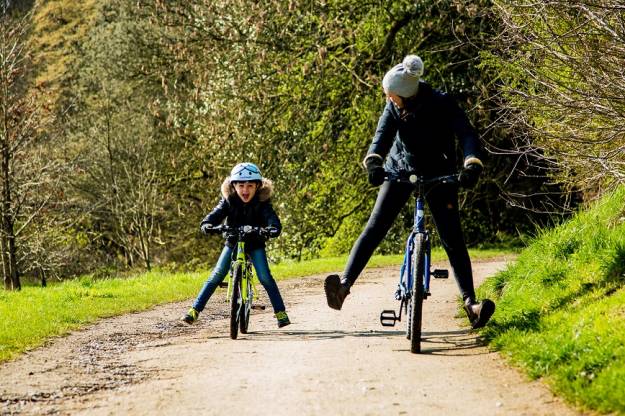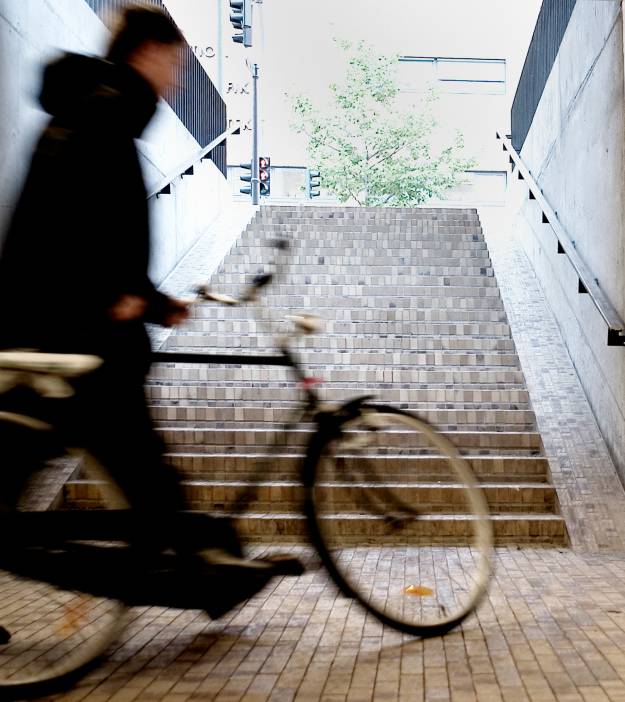The All Party Parliamentary Group's Get Britain Cycling report sets out a number of clear recommendations to government, which, if implemented would facilitate the growth of cycling in the UK. We take a look at the report recommendations and give you British Cycling's detailed reaction.
A new priority for investing public funds

- Create a cycling budget of £10 per person per year, increasing to £20.
British Cycling’s policy
- We need long term, sustained investment and a strategy to put cycling at the heart of transport policy. The total funding package that the government has previously announced works out at around £1 pound per head of the population. This falls far short of the investment that is needed to embed cycling in transport infrastructure.
- The Dutch spend £25 per head per year and have been doing so for decades. Cycling is now part of their culture with 43% of people in Amsterdam cycling to work. We need to match that level of funding to get Britain cycling.
Redesigning our roads, streets and communities
 a statutory requirement that cyclists’ and pedestrians’ needs are considered at an early stage of all new development schemes, including housing and business developments as well as traffic and transport schemes, including funding through the planning system.
a statutory requirement that cyclists’ and pedestrians’ needs are considered at an early stage of all new development schemes, including housing and business developments as well as traffic and transport schemes, including funding through the planning system.
British Cycling policy
- Ensuring that cycling is designed into all future roads, junctions and relevant transport policies is key. If cycling is put at the heart of transport policy - so that all decisions are made with cycling in mind - we can create a cycling nation to rival countries like Denmark. British Cycling has campaigned for mandatory cycling assessments to be carried out for all new road designs for the past 18 months – we’re really pleased to see this recommendation in the report.
- We know that safety concerns discourage people from cycling and badly designed junctions are a big problem. Anything we can do to right past wrongs and make sure future infrastructure is well designed will help us to drive up cycling participation figures.
Safe driving and safe speed limits
 Extend 20 mph speed limits in towns, and consider 40mph limits on many rural lanes.
Extend 20 mph speed limits in towns, and consider 40mph limits on many rural lanes.- Improve HGV safety by vehicle design, driver training, and mutual awareness with cyclists; promote rail freight and limit use of HGVs on the busiest urban streets at the busiest times, and use public sector projects to drive fleet improvements.
- Strengthen the enforcement of road traffic law, including speed limits, and ensuring that driving offences - especially those resulting in death or injury – are treated sufficiently seriously by police, prosecutors and judges.
British Cycling’s policy
- We know from experience both here and abroad that the most effective way of keeping people safe when they’re cycling is lower speed limits. Introducing 20mph limits in all residential and shopping streets would be a tremendously powerful policy tool to get more people cycling more often and would make our cities, towns and villages better places to live.
- While cycling is not an intrinsically dangerous activity, it’s clear that – where road collisions do occur – they tend to be more serious where they involve HGVs. That’s why we’re campaigning for the Department for Transport’s trial of longer articulated HGVs to be suspended until a proper safety assessment has been carried out. We also want all lorries operating on our roads to be compulsorily fitted with side bars and the latest standard of mirrors, without exception. We’d also like to see restrictions on the times when HGVs can enter cities as has happened in Paris and Dublin.
- Current cab designs often have large blind spots which can prevent drivers from seeing cyclists and it has been clear for a long time that we need tighter regulations that oblige manufacturers to make their vehicles as safe as they can be. This is an especially important issue in urban areas, many current designs are simply not fit for purpose for driving in cities.
- We welcome the recommendation on strengthening the enforcement of road traffic laws, specifically on driving offences. British Cycling – along with Cycling Weekly – has campaigned to secure a comprehensive review of how the justice system operates when people are hurt or killed on the roads for the past year. Our calls took a significant step forward recently when a newly formed Justice Working Group held its first meeting in London.
- All too often the criminal justice system lets cyclists down by failing to prosecute or returning sentences which don’t reflect the seriousness of the crime. Now that a review is underway, British Cycling will do everything it can to influence decision makers to put this right.
Training and Education
 Provide cycle training at all primary and secondary schools.
Provide cycle training at all primary and secondary schools.
British Cycling’s policy
- Cycling is a vital life-skill that all children should have – especially if we want to normalise cycling as an everyday activity that all people can do. Like the ability to swim, cycling is a skill that young people carry with them throughout their adult lives – be that cycling as a sport, a form of transport and a way to keep fit and healthy. Bikeability training shouldn’t just be the preserve of children whose schools or local authorities happen to promote cycling - it should be for everyone. We’ve taught thousands of young people how to ride bikes and we’ve introduced almost 400,000 young people to competitive cycling since 2009 but there are still millions of children who are missing out on cycling and we want to change that.
- British Cycling - along with other cycling organisations like the CTC – recently responded to a Department for Education consultation on the national curriculum asking for cycling to be included.
Political Leadership
 The Government should produce a cross-departmental Cycling Action Plan, with annual progress reports.
The Government should produce a cross-departmental Cycling Action Plan, with annual progress reports.- The Government should appoint a national Cycling Champion, an expert from outside the Department for Transport.
British Cycling’s policy
- To be effective the next steps from the government must be led from the very top. The Prime Minister is a good friend of cycling and cycles himself. With his backing we can apply the focus we used to turn ourselves into a leading cycle sport nation to embed cycling across whole of society so that it becomes a normal everyday choice which appeals to everyone. But for this to happen we need an agreed plan involving many government departments which is driven by the Prime Minister's will to get his country cycling.
- Chris Boardman spoke about the possibility of being the government’s cycling chief in February: “If that person was given a mandate and given teeth to make changes and given a defined policy to implement. I’d bite their arm off, so long as they could tell me exactly what they wanted to achieve and what power they would give me to get the job done.”












